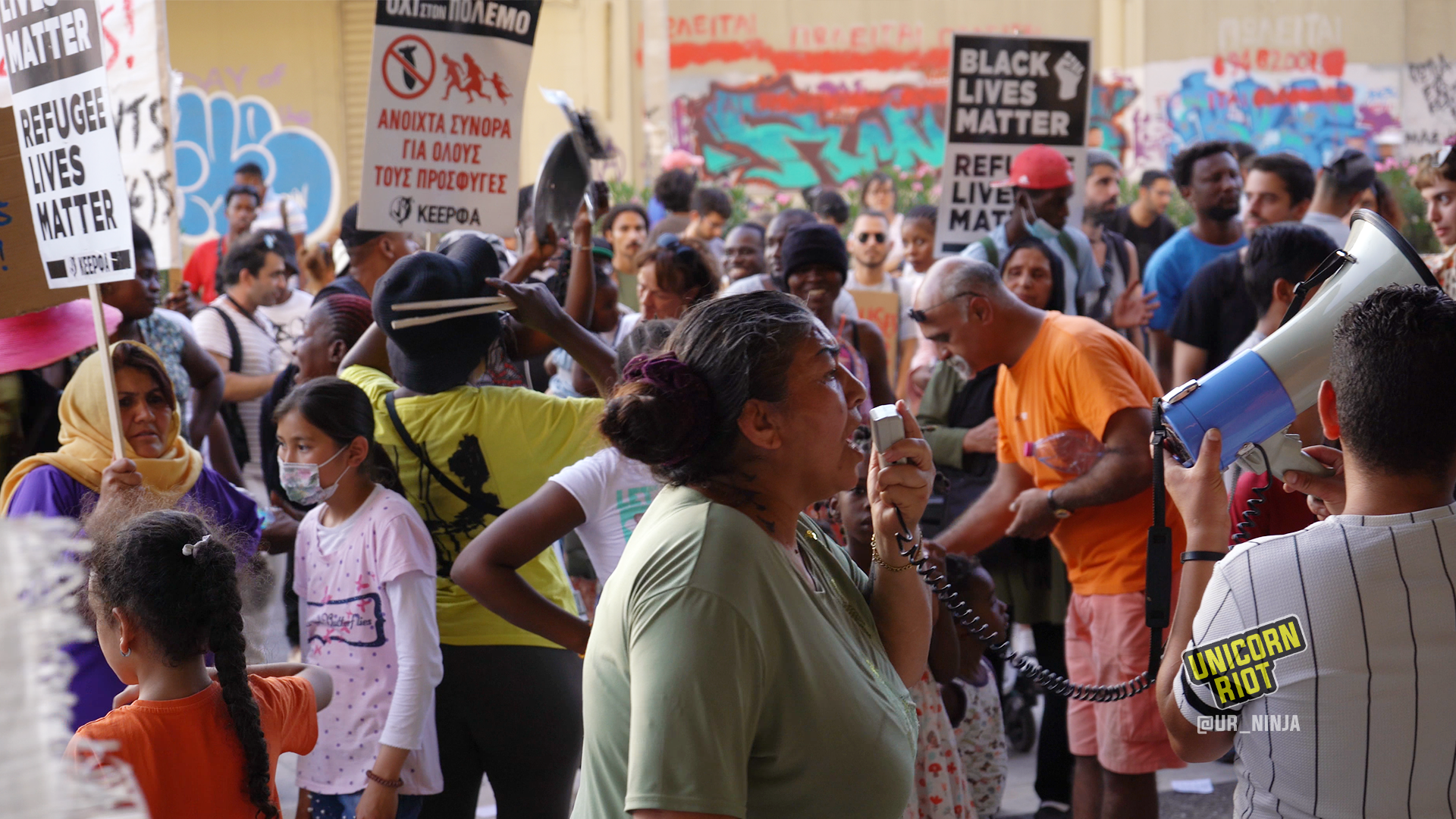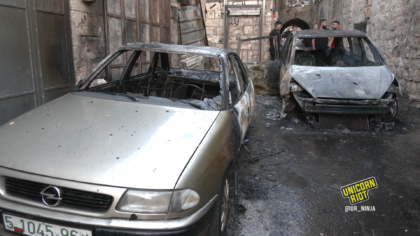Movement Spawns from Greek Government Plans to Close Eleonas Refugee Camp
Athens, Greece – Following the final decision of the Athens City Council on July 4 to proceed with the evacuation of the Eleonas refugee camp, communities of migrant residents are left in a very difficult position. The Municipality of Athens and the Ministry of Immigration are pushing for the displacement of the migrant population away from Athens. This push comes amidst large developer projects to build commercial sites and a football stadium in the area, which can currently be described as a post-industrial zone.
Formed in August 2015, Eleonas camp was the first state-built refugee living center on mainland Greece (others were previously built on the islands). Nearly 1,500 residents call the camp home for now, including migrant women with babies, students and asylum seekers with serious health problems (cardiological, neurological, psychological, etc.).
UPDATE: Sept. 2022 – Migrant Dies Amid Inhumane Conditions in Eleonas Refugee Camp
Many of the residents have settled in the camp and created a surrounding social and professional life for themselves in Athens for years. The Greek state continues its implementation of plans to transfer these residents to newly constructed, currently closed detention centers far from urban centers, without any thought for open housing structures for local migrants in the cities.
During the Summer of 2022, Unicorn Riot has been documenting actions from supporters and camp residents calling for the government to keep Eleonas camp open. We collated coverage from several protests and spoke with camp residents Niclette and Benjamin, both originally from the Democratic Republic of the Congo.
It all started on June 19 when unannounced buses escorted by police appeared outside the camp. It was a pre-planned operation to transfer hundreds of asylum seekers away from Athens to camps in areas like Malakasa, Schisto, and Thermopylae. The police, the Municipality of Athens and the International Organization for Migration (IOM), a United Nations agency, attempted to force people to sign consent forms to be transferred to the new outlying camps. In this first phase, the plan was to transfer 200 of the approximately 1,500 residents of Eleonas camp. Immediately there was a backlash from the residents, which prevented all but a few of them from signing relocation paperwork.
The very next morning on June 20, as the risk of eviction was imminent, the camp communities together with people in solidarity from Athens and social workers working in the camp called a protest in front of Eleonas camp and closed the road in front of the camp. There was a police presence and some buses staged nearby by authorities hoping to displace residents. Daily protest mobilizations began, and on June 22 there was a march around the camp where people approached the police buses and managed to push them away.
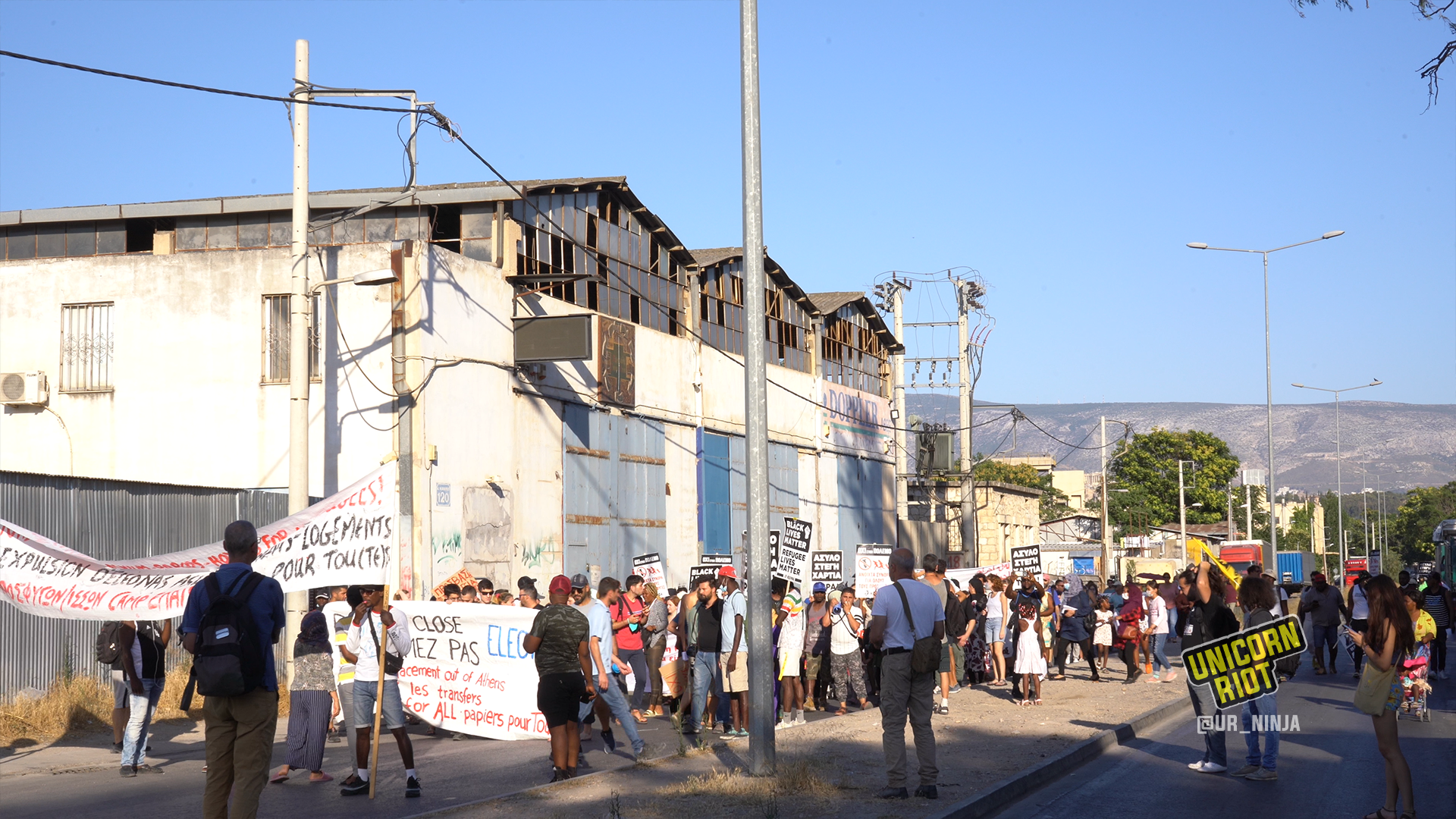
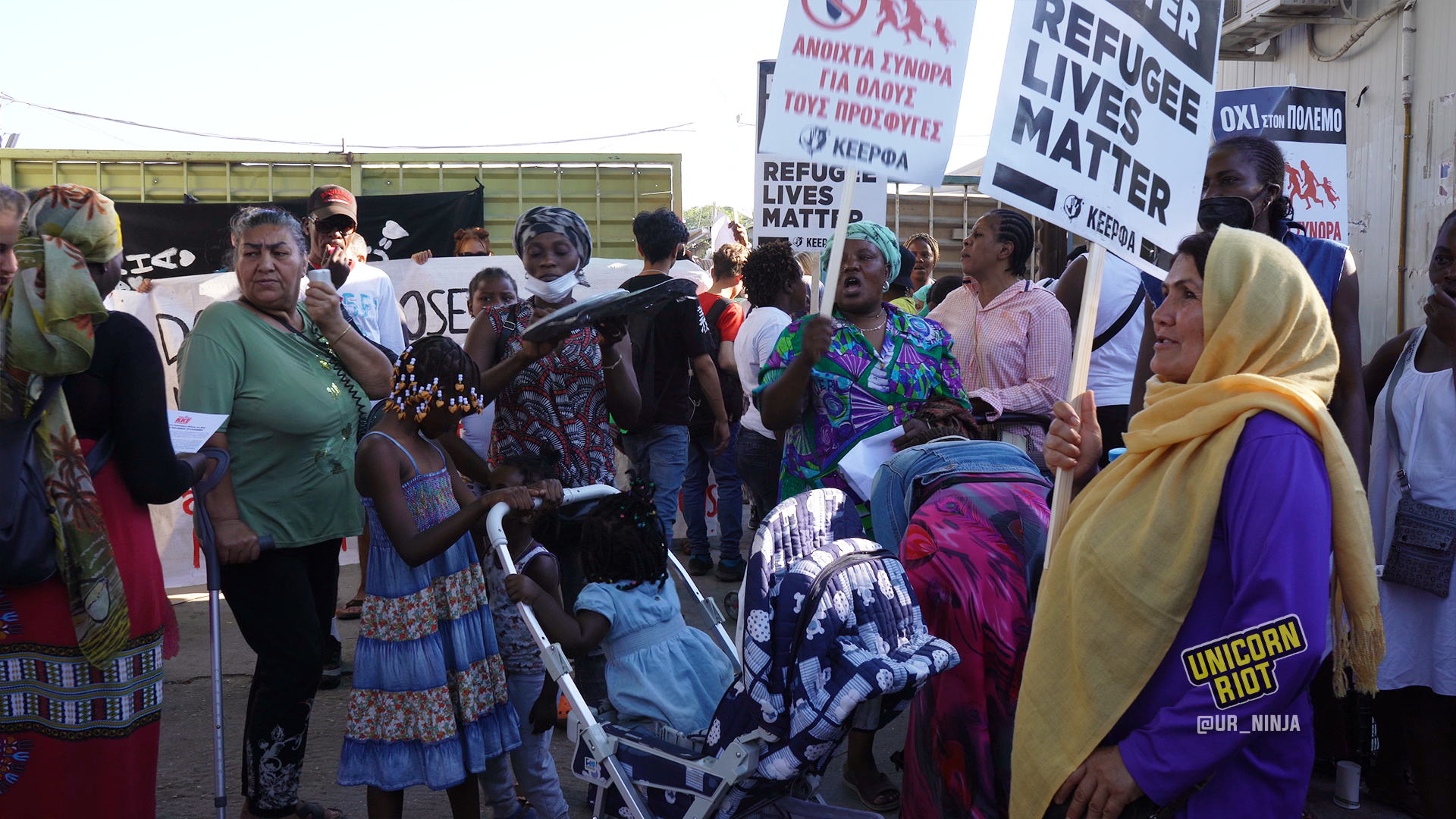
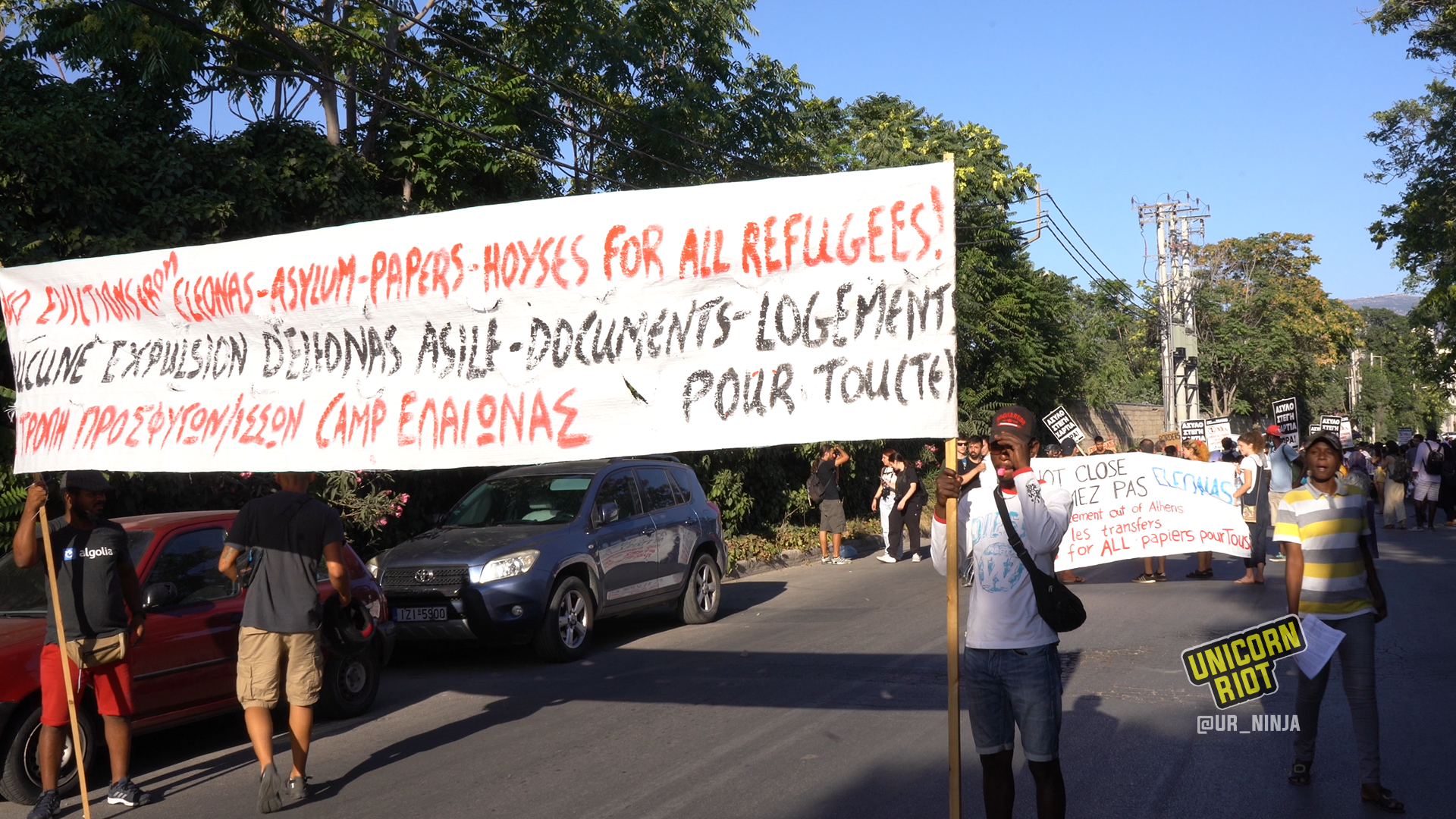
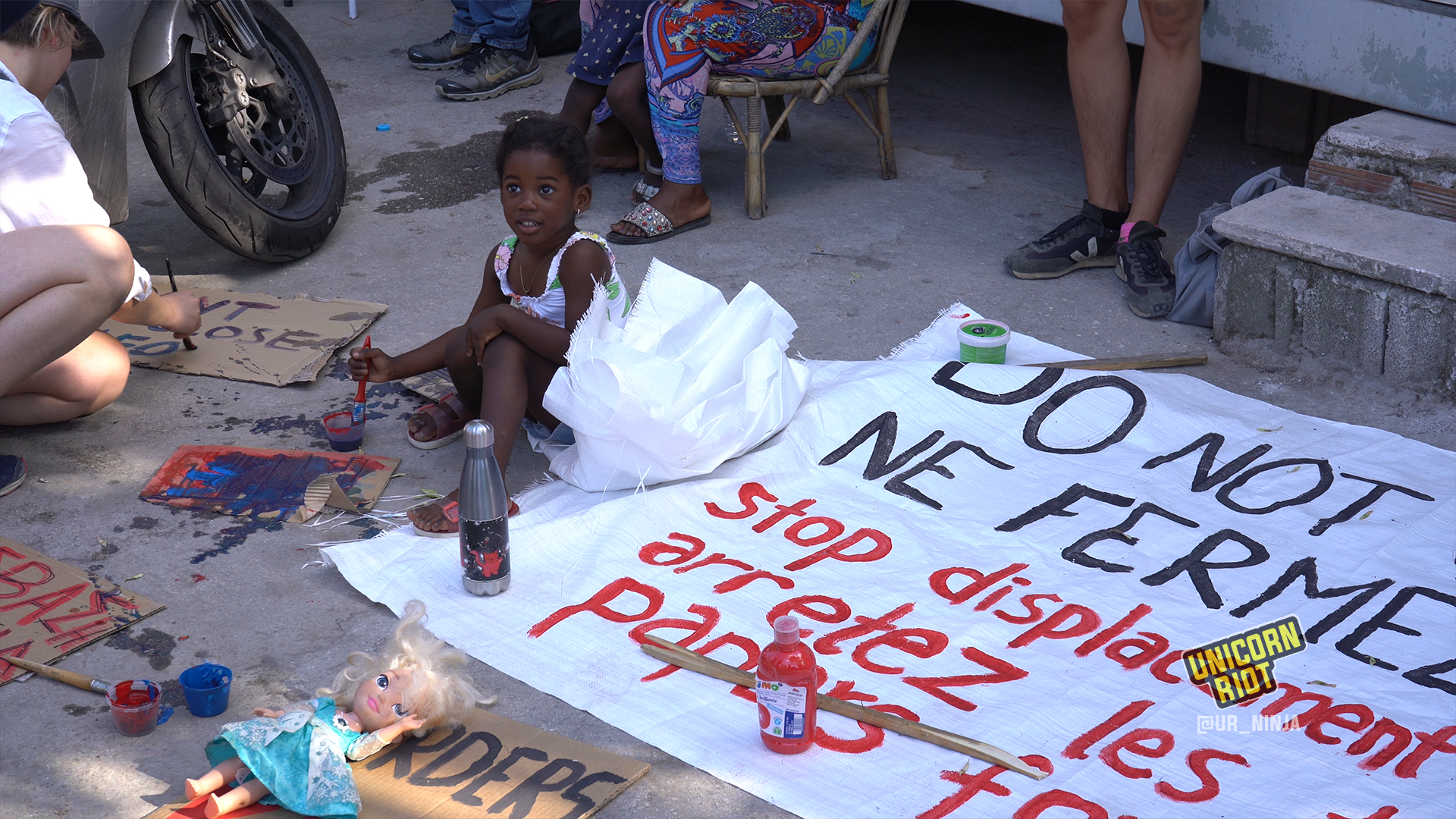
A strong, quick, and dynamic reflex of collective action by determined bodies ready to refuse forcible displacement of migrant communities seemed to surprise the police and the Municipality of Athens. This led to communication with the administration that indicated a possibility of temporarily blocking the relocation.
On June 24, workers of the I.O.M. were expelled from Eleonas camp after residents found them again trying to convince people to go to another camp outside Athens and thus to break the struggle of the communities. Meanwhile, meetings between residents of Eleonas and solidarity groups advanced the organizing of interventions (or protests) in various places, festivals, and events in Athens, socializing the struggle against displacement.
The peak of the mobilizations was a dynamic march on June 28, at the end of which camp residents together with people in solidarity held a long rally in front of the new Ministry of Immigration building, achieving a meeting with representatives of the Ministry.
#Greece: Today, dozens of migrants/refugees and solidarity activists marched on the Ministry for Migration in Athens against the closing of Eleona Camp and refugee relocations to closed detention camps far outside the the city. pic.twitter.com/aXOe6fQv6b
— Unicorn Riot (@UR_Ninja) June 28, 2022
Before the June 28 march, a letter and five demands from “We, the people, the families, the asylum seekers of the refugee camp of Eleonas” were released:
- The interruption of any attempt to close Eleonas camp.
- The interruption of any attempt to forcibly displace the inhabitants of the camp.
- The commitment by the Municipality of Athens and by the Ministry of Migration and Asylum, to ensure that the support activities carried out by the organizations and the social workers operating in the camp are not to be interrupted.
- The commitment by the Ministry of Migration and Asylum to guarantee the enjoyment of the Cash Assistance for the inhabitants of the camp, as established by the Estia program.
- The commitment by the Ministry of Migration and Asylum to ensure that people transferred from refugee camps to housing projects under the Estia program over the last few months will not be forced to leave their homes before completing their asylum procedures.
A statement crafted by the camp residents three days before the march in which they looked to “demonstrate [their] determination” called on Greek people “to show their solidarity” with the migrant struggle after briefly noting some of that struggle. Read the statement from June 25 below and another from June 30 at the end of the article, both translated and written by the on-the-ground collective Solidarity With Migrants (FB, Twitter), who works directly with migrants and connecting their struggles with the locals.
“When we arrived in Greece, in Europe, we were fleeing conflict, violence, persecution. Here we brought our hope of being able to start a new life, for us and for our children, in peace.
But the Greek authorities do not see in us human beings forced to flee: they see in us a problem to hide, taking us away from the eyes of Greek citizens, closing us in camps far from the cities, far from the rest of the society.
The right to health is not guaranteed in these camps, as it is the right to education for our children, as it is the right to live as free human beings. For those whose asylum application has been rejected, their living conditions are even worse, forced to work in conditions of exploitation and blackmail, unable to access health facilities when sick, risking everyday to be deported to the same countries they had to flee because their life was already in danger.
But we know that the Greeks are not racist like their government. We ask them to show their solidarity, and to support our struggle to live together, free and equal.”
Statement from residents at Eleonas camp on June 25, 2022, translated and written up by the collective Solidarity With Migrants
Residents held a public meeting on July 4 in front of the Town Hall in Athens while the session on the camp was taking place and their representatives were inside speaking to the town council. In the end, the proposal to not close the Eleonas camp and to extend the contracts of the social workers at the camp was barely voted down by the small majority — 18 votes against the proposal, 16 in favor, and one not casting a vote. Upon hearing the decision, the migrants said that they would continue to persevere in their demand and struggle.
Related: Greece’s First Housing Squat for Refugees & Migrants, Notara 26
Daily mobilizations continue in front of the camp and demonstrations continue across events in the city of Athens. Residents are not only fighting displacement but also for the ability of all people, even without proper government-ordered refugee ID papers, to be allowed into Eleonas camp.
Since the mobilizations started, the controls at the entrances have been tightened and private security guards deny entry to all those who are not registered in the camp. Pregnant women with babies and those in a miserable psychological state have recently been denied entry. However, many times and with pressure from residents, the security guards’ orders are bypassed.
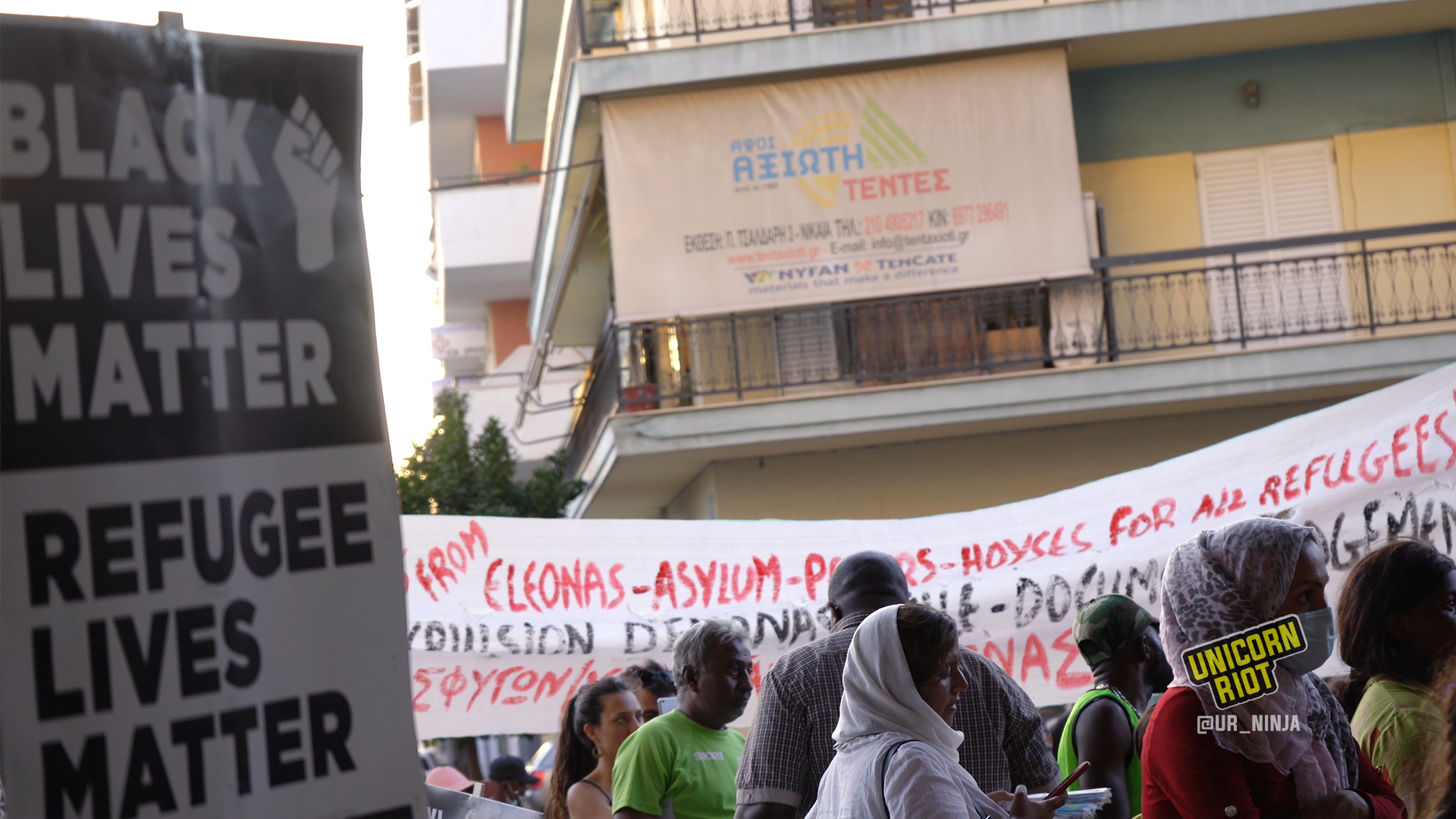
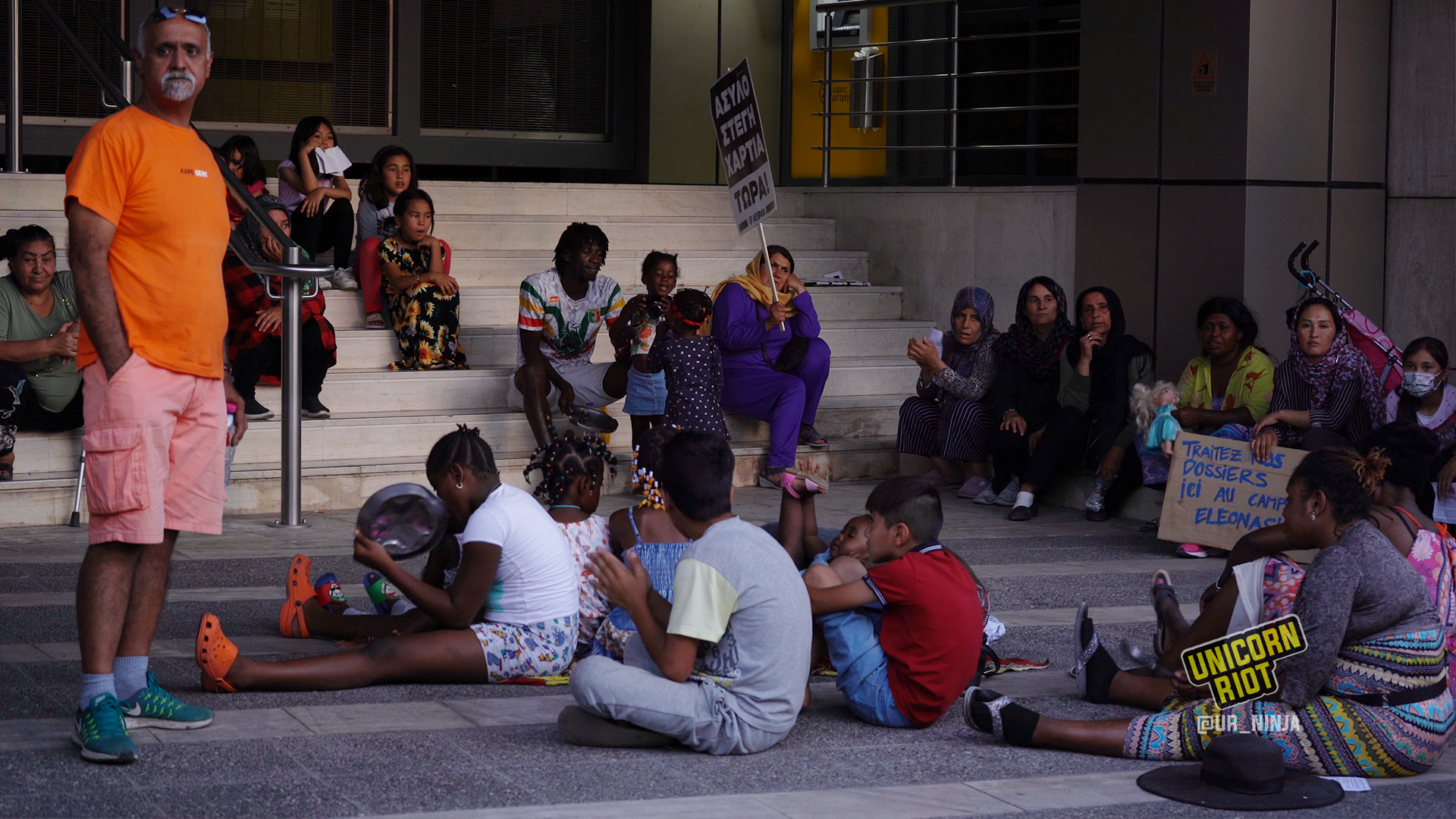
“The struggle to prevent the closure of Eleonas camp continues. At 6am on the 30th of June we, the residents of Eleonas camp, will block the entrance of the camp, preventing any staff from entering. The blockade is in response to the decision of the Ministry not to renew the contracts of the social workers operating in the camp, therefore limiting our possibility to exercise our health, education and asylum rights. The Ministry has also ordered the limitation of movement and is using an outdated and incorrect list of residents to prevent people who live in the camp from entering. The social workers on their part have refused to hand over the files of the residents to the authorities in protest.
The closure of Eleonas camp would result in hundreds of residents being forcibly displaced to camps outside of Athens with limited access to essential services such as healthcare and education. In these confinement camps, people without papers also face conditions of exploitation, blackmail, and the threat of deportation. We have been holding daily protests against the closure of Eleonas camp have been going on for over a week.
We suspect that the failure to renew the contracts of the social workers and the planned closure of the camp are linked. They want to remove the civil society actors from the camp to avoid accountability and are able to violently evict us. Nobody from the camp will leave voluntarily.
We are demanding that our trusted social workers are reinstated, and until then none of the staff will be accepted into the camp. In addition, only 12 families out of the over 300 residents of the camp are receiving food from the Ministry, and these families are refusing this food until the government agrees to feed all of us residents. We want the right to work and papers for all of the residents of Eleonas camp.”
Statement from the residents of Eleonas camp, translated and written up by the collective Solidarity With Migrants
For more media from Greece, see our Greece archive page.
Follow us on X (aka Twitter), Facebook, YouTube, Vimeo, Instagram, Mastodon, Threads, BlueSky and Patreon.
Please consider a tax-deductible donation to help sustain our horizontally-organized, non-profit media organization:

